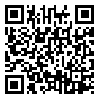Articles In Press
Back to the articles list |
Back to browse issues page
Hormozgan University of Medical Sciences
Abstract: (49 Views)
Introduction: Given the advancements in technology and the importance of digital literacy in daily life, this study examines the impact of digital literacy on the entrepreneurial intention of students in the Health Information Technology field. Its aim is to determine the role of digital literacy in leveraging opportunities and developing business ideas.
Methods: The present study is Descriptive-analytical and cross-sectional, conducted in 2024 at Hormozgan University of Medical Sciences. Data on digital literacy and entrepreneurial intent collected through a questionnaire and analyzed SPSS 27 software. To determine the relationship between the variables of digital literacy and entrepreneurial intent, correlation and regression methods were employed, and hypothesis tests related to the population mean were used to assess the level of skills.
Results: The results showed that students scored above the average level (3) in some dimensions of digital literacy, such as personal security (3.3800), critical thinking (3.3440), and communication skills (3.3250), but they need to strengthen their information skills (2.3480). The correlation between digital literacy and entrepreneurial intention showed a weak and non-significant relationship (P-value>0.05), and only the critical thinking skill (t=2.127, p-value=0.039) had a significant positive effect on entrepreneurial intention, suggesting that other factors are also influential and involved in this relationship.
Conclusion: Digital literacy alone is not sufficient to foster entrepreneurial intention. Universities should enhance digital literacy skills and entrepreneurial motivation through targeted educational programs. Additionally, future research should involve larger sample sizes and examine mediating factors.
Methods: The present study is Descriptive-analytical and cross-sectional, conducted in 2024 at Hormozgan University of Medical Sciences. Data on digital literacy and entrepreneurial intent collected through a questionnaire and analyzed SPSS 27 software. To determine the relationship between the variables of digital literacy and entrepreneurial intent, correlation and regression methods were employed, and hypothesis tests related to the population mean were used to assess the level of skills.
Results: The results showed that students scored above the average level (3) in some dimensions of digital literacy, such as personal security (3.3800), critical thinking (3.3440), and communication skills (3.3250), but they need to strengthen their information skills (2.3480). The correlation between digital literacy and entrepreneurial intention showed a weak and non-significant relationship (P-value>0.05), and only the critical thinking skill (t=2.127, p-value=0.039) had a significant positive effect on entrepreneurial intention, suggesting that other factors are also influential and involved in this relationship.
Conclusion: Digital literacy alone is not sufficient to foster entrepreneurial intention. Universities should enhance digital literacy skills and entrepreneurial motivation through targeted educational programs. Additionally, future research should involve larger sample sizes and examine mediating factors.
Send email to the article author
| Rights and permissions | |
 |
This work is licensed under a Creative Commons Attribution-NonCommercial 4.0 International License. |



